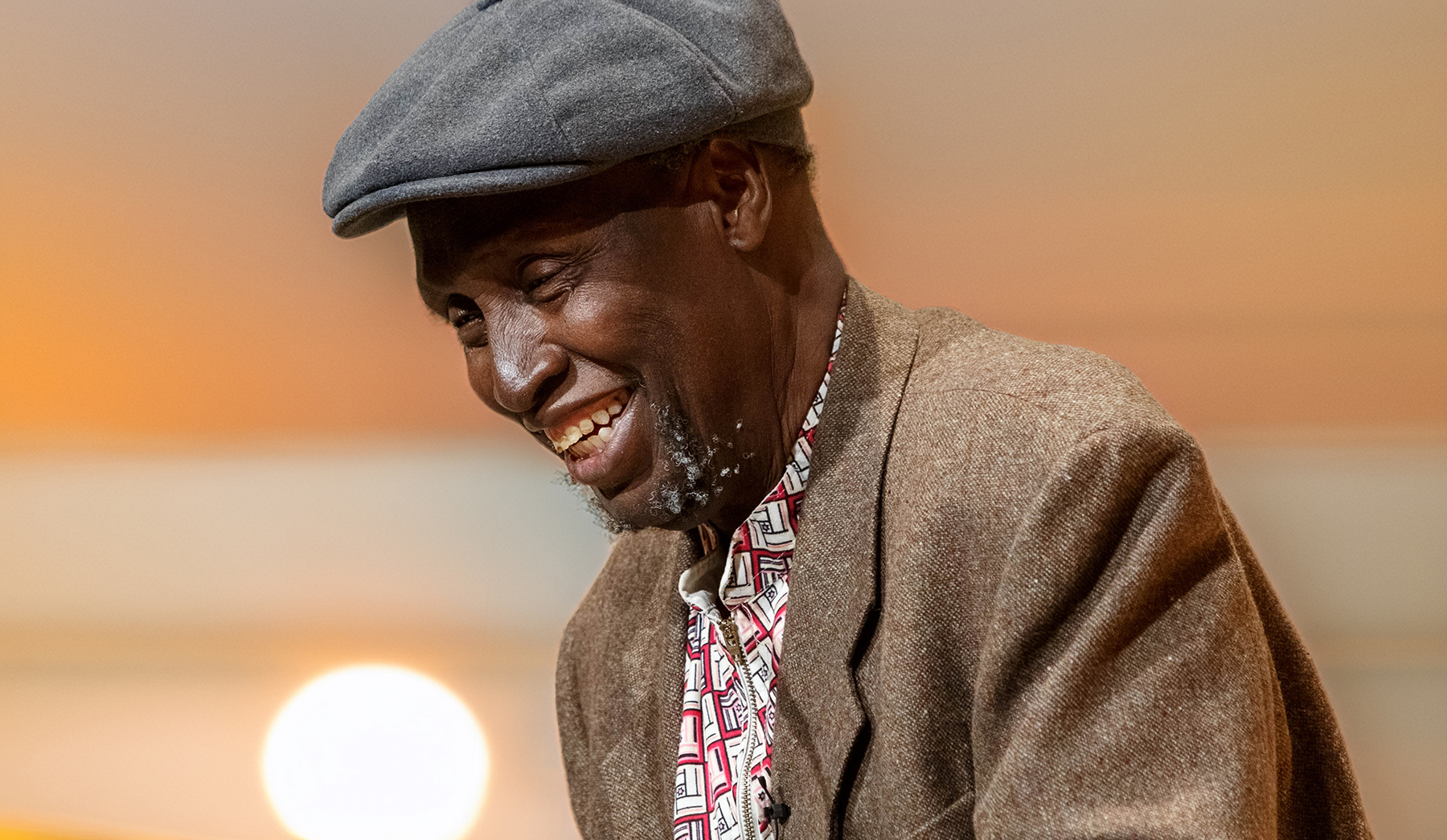Today, we rise in mourning and memory. Today, we bow our heads and raise our voices. Ngũgĩ wa Thiong’o—our brother, our comrade, our revolutionary griot—has joined the ancestors.
Ngũgĩ walked this earth with a fire in his bones, a pen in his hand, and Africa on his lips. Born into a land cracking under colonial weight, he answered history not with silence, but with story—fierce, unfaltering story. And in doing so, he became one of Africa’s indelible voices. One of her unwavering warriors.
For the Mĩcere Gĩthae Mũgo Foundation, this loss is intensely personal. For our beloved Mĩcere and Ngũgĩ were more than compatriots; they were soul-siblings. The 1950s pre-independence era in Kenya birthed what would become a decades old friendship. From across the valley in Kikuyu, Kiambi County, with Ngũgĩ at Alliance High School and Mĩcere at Alliance Girls High School, they were both sharpened by youthful idealism and dreams of liberation. It deepened in the early 1960s from within the bustling corridors of Uganda’s Makerere University, where Ngũgĩ—then James Ngugi—and Mĩcere—then Madeleine Githae—shared books, editorial notes, laughter, arguments, disdain for imposed names, and the fierce urgency of decolonization.
They were part of a renaissance—an awakening—at a time when African letters burst forth with unyielding power. Together, they would later shape the English Department at the University of Nairobi in the1970s into a beacon of African-centered pedagogy, planting Kenya’s armed liberation struggle into the theatrical arts, and raising the clarion call to “decolonize the mind,” long before that phrase became part of our global vocabulary.
Together, they wrote. Together, they resisted. Together, they re-imagined, refusing to be footnotes in someone else’s story.
Ngũgĩ’s journey was never easy. His incarceration following the revolutionary staging of Ngaahika Ndeenda (I Will Marry When I Want) was emblematic of the price he paid for truth-telling. And yet, from a maximum-security cell, he birthed a new vision: to write in Gĩkũyũ, to reclaim the soul of African expression. He wrote Devil on the Cross on scraps of toilet paper, reminding us that language is not simply a tool—it is a terrain of struggle.
Like Mĩcere, he bore the pain of detention and of eventual exile, walking lands far from home, but never far from Africa’s heartbeat. From Nairobi —via London, New York City, New Haven, Chicago, and Irvine—to Atlanta, he carried the soil of his motherland in every syllable. He taught us that “the center is where we stand,” and that “there is no night so dark that it will not yield to dawn.”
And it was with Mĩcere that he found kinship not only in ideology, but in a shared poetic spirit. Together they challenged empire. Together they imagined freedom. Together, they dreamed of a continent that would sing in its own tongues, write its own histories, and dance in the full dignity of its own cultures. Even in retirement, sixty years on from their days at Makerere, their sharing of books, notes, laughter, arguments, disdain for imposed names, and the fierce urgency of decolonization continued.
When Mĩcere joined the ancestors in June 2023, his was the amongst the first tributes we received, knowing the day would come when Ngũgĩ, too, would cross that great river. But even with such foreknowledge, grief arrives like thunder. We are gutted. We are grateful. And we are reminded.
Reminded of Weep Not, Child, where the dreams of the oppressed flicker and rise. Reminded of Petals of Blood, where capitalism, neocolonialism, and betrayal are named and defied. Reminded of Matigari, the eternal revolutionary who returns again and again to finish what must be finished. And reminded of Kimathi.
To quote Ngũgĩ’s own words, “A writer is a truth teller.” And Ngũgĩ wa Thiong’o told the truth—about empire, about betrayal, about resistance, about language, and about love. Love for Kenya. Love for Africa. Love for justice.
As we remember him, let us not lay down the vision. Let us lift it. Let us live it.
In the tradition of Mĩcere Gĩthae Mũgo, in whose memory this Foundation is guided, we salute Ngũgĩ wa Thiong’o, voice of Gĩkũyũ, conscience of a continent as he stands tall among the ancestors.
In your name, Ngũgĩ, in your honor, in your fire.
We rise.
We write.
We remember.
We rebel.
A Luta Continua.
Ashe! Afya! Moyo!
